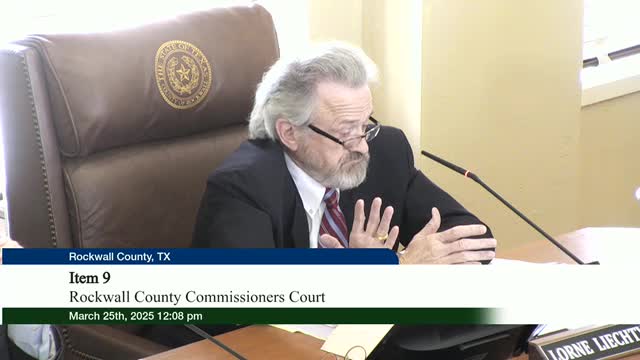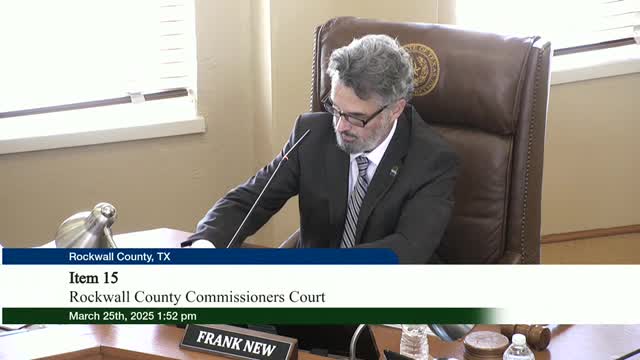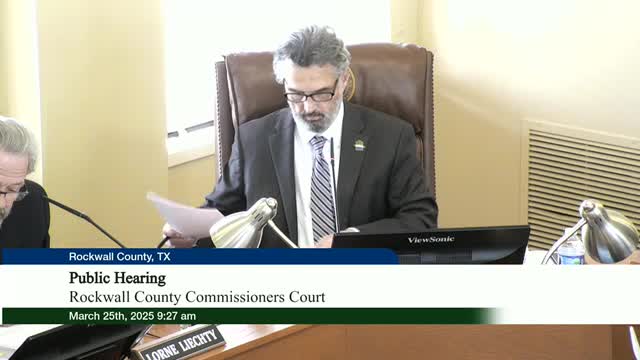Article not found
This article is no longer available. But don't worry—we've gathered other articles that discuss the same topic.

Rockwall commissioners disapprove four River Rock Trails preliminary plats, citing water, safety and apportionment concerns

Votes at a glance: River Rock plats disapproved; county awards dam repair contract and approves several construction and procurement items

